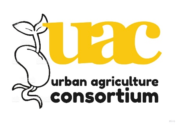Protected and controlled environments
Protected & controlled environments – from polytunnels to aquaponics, local heat sources andcomposting: urban areas can stimulate creative responses. Affordable, human scale technologies meeting local needs. Because of variations in climate across the UK, many food growing projects rely on protected or assisted growing environments to extend the growing season. These can range from passive […]
Protected and controlled environments Read More »
